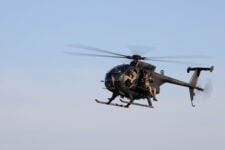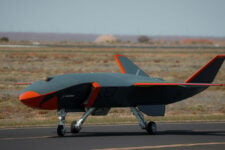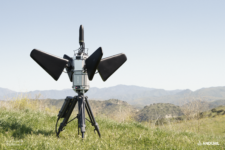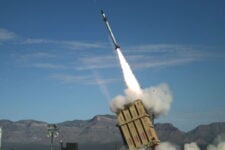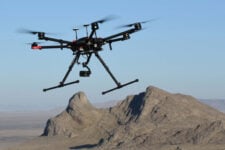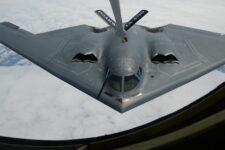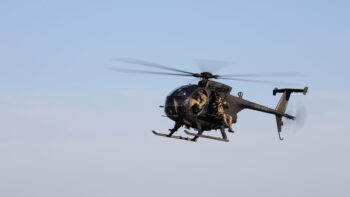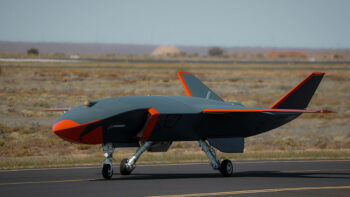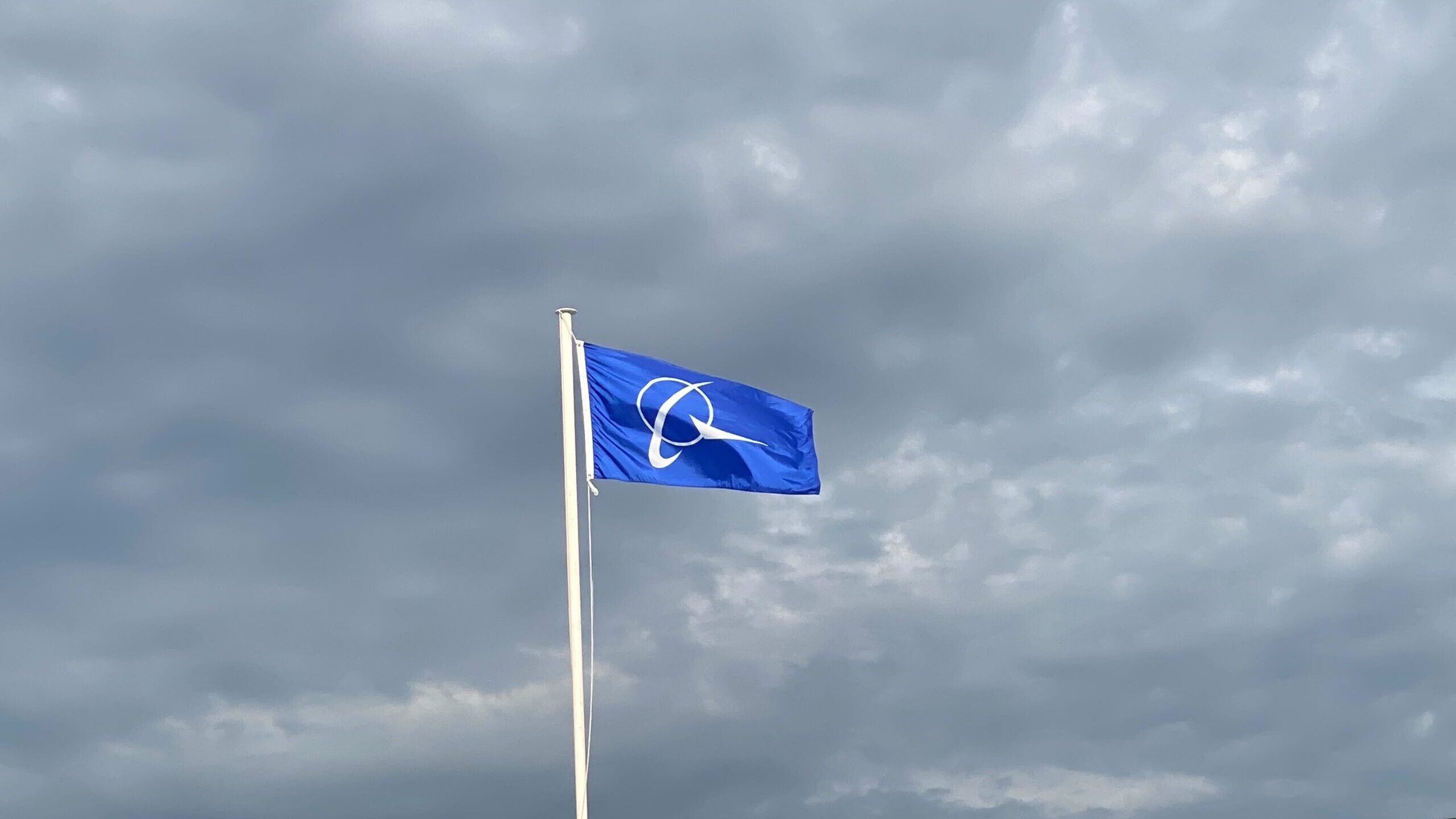
Storm clouds gather behind the logo of Boeing at the 2023 Paris Air Show. (Aaron Mehta/Breaking Defense)
WASHINGTON — Boeing’s beleaguered defense business logged its smallest loss of the year in the final quarter of 2023, stanching some of the bleeding for the unit as the company’s commercial arm grapples with renewed safety concerns for its best-selling 737 MAX jetliner.
The aerospace giant announced in its 2023 year-end earnings report today that Boeing Defense, Space & Security incurred $101 million in losses in the fourth quarter, the smallest for the year that saw a high of $924 million in the red. The new loss stemmed largely from $139 million in charges for three fixed-price development programs, “as well as unfavorable performance and mix on other programs,” according to Chief Financial Officer Brian West, though he did not name the programs in question.
The defense business’s fourth quarter performance was a “sequential improvement” from the previous quarter, West said, “but still we have more work to do.” The sector’s performance over the year was “worse” than the company previously expected, he conceded, and has not turned a profit since the final quarter of 2022.
West has previously described Boeing’s defense portfolio as consisting of three main areas: 60 percent is tied to a “core” collection of well-performing programs like the AH-64 Apache helicopter and munitions; 25 percent is in fighters and satellites; and 15 percent concerns fixed-price development programs like the KC-46A tanker and VC-25B Air Force One replacement. West said today that the fighter and satellite piece “has to get better,” and that company executives “expect it to get better and look a lot like it used to.”
That leaves the fixed-price development contracts that have been bogging down the portfolio, a key reason why executives have warned the defense sector won’t be profitable until the 2025-2026 timeframe. Boeing made “good progress” de-risking those programs, West said, and additionally noted that defense margins as a whole should reach double-digits when accounting for revenue in the company’s well-performing Global Services division.
The earnings call was otherwise dominated by the fallout from Boeing’s new MAX safety crisis after a door plug fell off an Alaska Airlines 737 MAX-9 mid-flight earlier this month. The event has intensified scrutiny of the plane maker’s quality control and prompted greater oversight by the Federal Aviation Administration, a freeze in the 737 MAX’s production rate and Boeing withdrawing a waiver to enter its 737 MAX-7 into service.
The company additionally did not offer a financial forecast for 2024 due to the MAX issues, saying instead it is focusing on safety.
Nevertheless, Chief Executive Officer Dave Calhoun — who took the reins of the company in January 2020 following the crashes of two 737 MAX-8s — welcomed the new supervision, arguing that “this increased scrutiny, whether it comes from us, from our regulator or from third parties will make us better.”
“An event like this simply must not happen with an airplane that leaves one of our factories,” he said, referring to the Alaska Airlines incident. “We simply must be better. Our customers deserve better.”
Eight ‘capability coalitions’ are rushing arms to Ukraine. Here’s who will donate what. (EXPLAINER)
NATO has established eight different capability coalitions designed to get critical systems or ammo into Ukrainian hands quickly. Here’s a deep dive into how they’re all faring.





